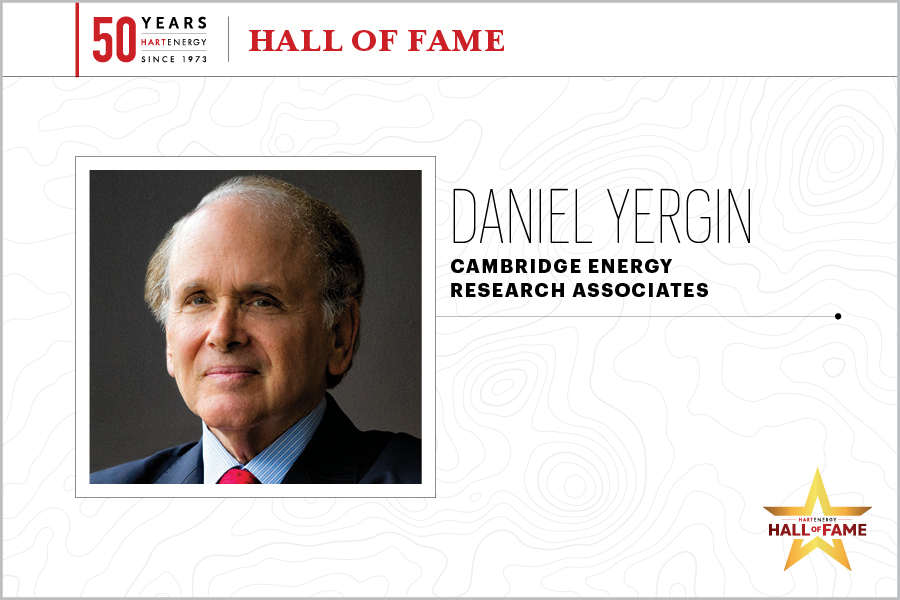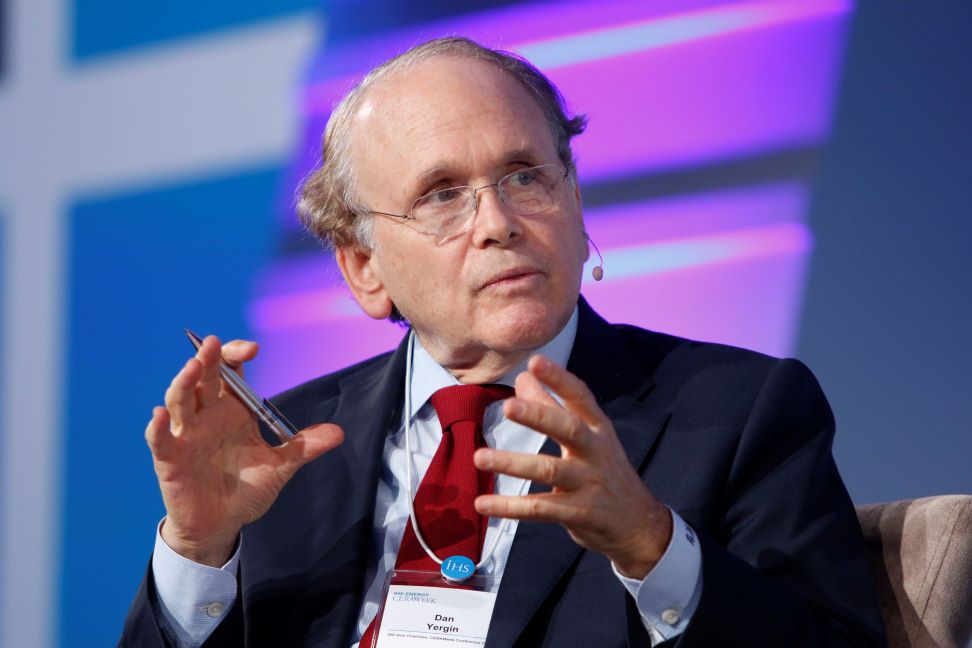Daniel Yergin
Editor's note: This profile is part of Hart Energy's 50th anniversary Hall of Fame series honoring industry pioneers of the past 50 years and the Agents of Change (ACEs) who are leading the energy sector into the future.

Daniel Yergin, a researcher who likes to tell stories, became fascinated with the energy industry in the 1970s as a postdoctoral fellow at Harvard.
After leaving Harvard Business School, he wanted to continue doing energy research, which he found fascinating because “everything from geopolitics to technology is encompassed when talking about the energy industry,” Yergin, now vice chairman of S&P Global, told Hart Energy.
In 1982, Yergin and Jamey Rosenfield co-founded Cambridge Energy Research Associates (CERA), purchasing a $2 filing cabinet to formalize the venture.
“It was a bold idea to think that people wanted research on energy from a small shop in Cambridge, but it kind of acted as a magnet and drew clients,” he said.
Rosenfield, senior vice president of S&P Global, now serves as co-chairman of CERAWeek. Their goal, he told Hart Energy, is to contribute to the industry through a thought-leadership platform that brings people together to share ideas that could shape the future of energy.
Over the years, he said, Yergin has provided insights into the future of energy.
“He’s been a very sound voice of reason and has shaped the world’s understanding of energy for over 40 years,” Rosenfield said.
Two years after Yergin and Rosenfield founded CERA, they held the very first conference, which drew an audience of 200. The one-day event has grown into CERAWeek by S&P Global, which drew 8,600 attendees in March 2023.

Yergin considers himself an economic historian and energy analyst, and has chronicled the history and evolution of the industry. Perhaps best known for the Pulitzer Prize-winning book, “The Prize: The Epic Quest for Oil, Money, and Power,” released in 1991, he is also the author of the 1977 book, “Shattered Peace,” which examined the Cold War, the 2011 book, “The Quest: Energy, Security, and the Remaking of the Modern World,” and the 2021 book, “The New Map: Energy, Climate, and the Clash of Nations.”
He also co-authored “The Commanding Heights: The Battle Between Government and the Marketplace That Is Remaking the Modern World,” with Joseph A. Stanislaw. That book was released in 1998 and revised, retitled and updated as “The Commanding Heights: The Battle for the World Economy” in 2002.
“If I think about my books, it’s really one story unfolding in each book,” he said, adding his books have captured how much the energy business has changed as well as “how essential the oil and gas industry remains today.”
“The Prize,” he said, became a defining book for the industry.
“This book has a life of its own,” Yergin said. “So many people that I know say that this is the book that they read when they began in the industry, or that this was the book that led them to join the industry.”
He loves research.
“One of the problems I have as a researcher is I sometimes just go down rabbit holes…. You just keep wanting to find out more,” he said.
And writing is part of his identity.
“If I’m not doing it, I feel something’s missing,” he said.
Over the years, he has seen the energy business transform itself time and again. The energy business isn’t static, but driven by technological and strategic innovations and geopolitics, he said.
“It’s always changing, and just when everybody agrees on where things are and everybody agrees on what the consensus is, something comes along that just changes it.”
—Jennifer Pallanich, Senior Editor, Technology
